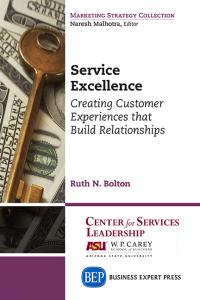 guest article by Ruth Bolton, winner of AMA Irwin McGraw Hill Distinguished Educators Award 2016.
guest article by Ruth Bolton, winner of AMA Irwin McGraw Hill Distinguished Educators Award 2016.
I was drawn to work in the services field for two reasons. First, I have always believed that academic research on business topics ultimately helps people create better lives for themselves. Second, I have a strong focus on problem-driven research. A great example of both these principles is a program called Imagine No Malaria.
Malaria is killing people in Africa – over 90% are pregnant women and children under the age of five. This disease is transmitted by mosquitos that breed in standing water. Yet, malaria is a preventable and treatable. If someone gets malaria, doctors know how to cure it. Malaria was eradicated in the USA years ago – when the Center for Disease Control was first established. Today, many organizations are supporting work to eradicate malaria in Africa. (See: https://www.malarianomore.org/) What are organizations doing? How are they doing it in an affordable way?
- Providing products: giving families inexpensive bed nets so that they are protected from mosquitos and educating them on how to use them
- Providing services: spraying with safe, long-lasting insecticides
- Communicating: using radio and volunteer workers to reach remote rural areas, so people learn the importance of eliminating puddles of standing water, the symptoms of malaria and the nearest place to get medical help (which might be many miles away)
- Creating a network of health services: clinics, schools and mission outposts collaborate with people to help them live healthier lives.
These activities are exactly what service researchers study! Ultimately, our work is translated into innovative and improved activities that can change people’s lives for the better.
The great news about Imagine No Malaria is that it’s working. The number of deaths from malaria has declined by 60% since 2000! And the program is on target to reach its goal to eradicate malaria in Africa.
My interest in problem-driven research is due to Dr. Richard Staelin (Duke University). As chair of my dissertation committee at Carnegie Mellon University, he was an important role model for me. Rick is a gifted academic ─intellectually curious about a wide variety of marketing problems and always aiming for rigor and relevance. In addition to his heavily cited papers, Rick worked with the FDA, the FTC and major corporations.
My shift to studying services and customer-firm relationships took place when I joined GTE Laboratories (now Verizon). There were hundreds of researchers at the Labs with doctorates in every discipline imaginable – teaming up with managers to study telecommunication and information services. Advances in technology were enabling new digital services and de-regulation was changing the marketplace. I learnt a tremendous amount from interacting with a diverse group of managers and scientists.
I worked with Dr. James Drew, a statistician, on a variety of projects. We tackled diverse managerial problems: customer satisfaction and service quality, service operations, pricing, and new product development. We used almost every kind of research design and tool: qualitative studies, survey programs, field experiments, lab experiments, choice models, and so on. Our job was to identify the best research design for the managerial problem – and come up with actionable answers. My interest in problem-driven research solidified by working with Jim at GTE Labs.
 Although I never expected it, these experiences were a great help when I served as editor of the Journal of Marketing and (later) Executive Director of the Marketing Science Institute. In both roles, I was helping academics make discoveries – and share what they had learned with others. I developed a deep appreciation of the importance of the different ways that academics share their knowledge: academic associations, conferences, teaching, books, reviewing and publishing articles. In fact, it convinced me that I should write a book for practitioners! It is called Service Excellence: Creating Customer Experiences that Build Relationships. Business Expert Press will publish it in April 2016.
Although I never expected it, these experiences were a great help when I served as editor of the Journal of Marketing and (later) Executive Director of the Marketing Science Institute. In both roles, I was helping academics make discoveries – and share what they had learned with others. I developed a deep appreciation of the importance of the different ways that academics share their knowledge: academic associations, conferences, teaching, books, reviewing and publishing articles. In fact, it convinced me that I should write a book for practitioners! It is called Service Excellence: Creating Customer Experiences that Build Relationships. Business Expert Press will publish it in April 2016.
Winning the AMA Irwin McGraw Hill Distinguished Educators Award would not have been possible without the inspiration and support I have received from many others. For those who have touched my life in any way, you know who you are, and I am truly grateful for all you have done.
 Ruth Bolton
Ruth Bolton
Professor of Marketing
Arizona State University

